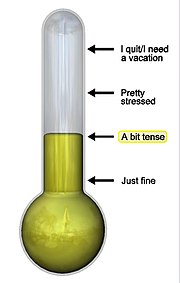User:Commit charge/Loshlosh sandbox

Wiki What? -- It makes a man good, moreover, worthy to be a king if he has ἠθικός too. -sujirou
User:Commit charge/Templatebox
Mao kini ang TAKNA sa pagka karon. - para Update sa Orasan-Loshlosh

{{[[Template:pp-meta |pp-meta ]]}}
Influence of Age on the Management of Heart Failure: Findings from "Get With the Guidelines–Heart Failure" (GWTG-HF)
[edit]Background Heart failure (HF) is common among elderly adults. Although multiple studies demonstrate age-related declines in the utilization of evidence-based therapies for coronary artery disease, there are few analyses of HF patients to distinguish possible age-related management differences. Methods We analyzed 57,937 HF admissions from January 2005 through April 2007 in 257 hospitals participating in the American Heart Association's Get With The Guidelines–Heart Failure program. Patient characteristics and management were stratified by age groups ≤65, 66–75, 76–85, and >85 years. Multivariable regression analyses were used to assess the influence of age on use of therapies and inhospital mortality. Results The mean patient age was 73 ± 14 years; 18.7% were >85 years of age. Prescriptions of most HF therapies were relatively reduced with age but still remained high overall. Although 88.6% of patients ≤65 years of age with left ventricular systolic dysfunction were prescribed angiotensin-converting enzyme inhibitor or angiotensin receptor blocker and 90.9% were prescribed β-blockers, among those >85 years of age with left ventricular systolic dysfunction, 79% were prescribed angiotensin-converting enzyme inhibitor or angiotensin receptor blocker and 82.7% were prescribed β-blockers. Regression analysis that accounted for typical confounders demonstrated that older age was associated with diminished utilization of most evidence-based treatment measures as well as increased mortality. Conclusions Get With The Guidelines–Heart Failure data demonstrate that guidelines recommended therapies are frequently utilized for older patients with HF, including patients >85 years old. Nonetheless, age-related differences in therapy persist, suggesting that opportunities to improve care still remain. Introduction
Optimal management of heart failure (HF) in older adults is a growing health care priority. Aging intrinsically predisposes to increased incidence of HF as well as to increased HF morbidity and mortality.[1] Implications of these risks are compounded by today's burgeoning population of elderly.[2] While HF is already the leading cause of hospitalization in persons ≥65 years old, cumulative morbidity, mortality, and associated costs will undoubtedly escalate as the elderly population increases.[3,4]
Prior studies focusing on management of senior cardiovascular patients have highlighted the decreased use of evidence-based medicine in relation to advancing age, focusing predominantly on patients with coronary artery disease (CAD).[5–7] However, it is often unclear whether these patterns stem from sound clinical judgment, such as concerns regarding frailty, or if they constitute inappropriate omissions.[8] Confounding issues, including polypharmacy, iatrogenic side effects, comorbidities, and sex might also shape therapeutic choices.
The American Heart Association's Get With The Guidelines-Heart Failure (GWTG-HF) program was initiated in January 2005 as part of a performance improvement initiative to enhance guideline adherence in patients hospitalized with HF.[9–12] Institutional participation may help catalyze changes in therapeutic standards as clinicians become more cognizant of guideline-based recommendations.[10,11] The prospectively collected GWTG-HF dataset also provides detailed clinical information on comorbidities and specific contraindications to therapy and therefore facilitates an important opportunity to assess practice patterns pertaining to younger versus older HF patients.
- —CommitchargetaLK 2024-11-24 14:43 UTC

